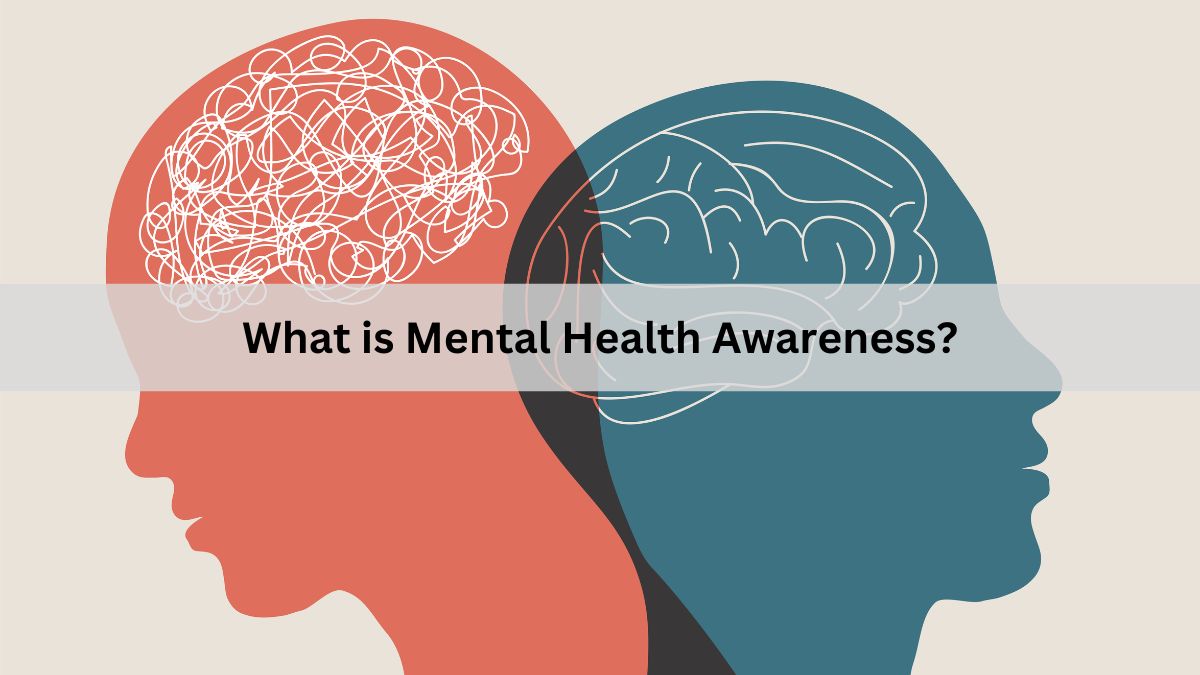What is Mental Health Awareness?
Mental Health Awareness is a critical component of overall well-being, yet it remains a topic often misunderstood or overlooked in society. This article aims to define and explore the importance of mental health awareness, its impact on individuals and communities, and practical steps to promote mental well-being.
Understanding Mental Health Awareness
Mental health awareness refers to the understanding, recognition, and acceptance of mental health conditions and the importance of mental well-being. It encompasses knowledge about common mental disorders, reducing stigma, and promoting access to mental health resources and support.
Significance of Mental Health Awareness
- Education and Understanding: Mental health awareness involves educating individuals and communities about mental illnesses, their symptoms, and available treatments. It helps reduce misconceptions and encourages early intervention.
- Stigma Reduction: Increasing awareness reduces stigma associated with mental health conditions. Stigma can prevent individuals from seeking help or disclosing their struggles, leading to isolation and untreated mental illness.
- Promotion of Mental Well-being: Awareness promotes proactive measures to maintain good mental health. It encourages self-care practices, stress management techniques, and seeking support when needed.
Why Mental Health Awareness Matters
Promoting mental health awareness has profound benefits for individuals, families, workplaces, and society as a whole.
Individual Well-being
Awareness empowers individuals to recognize signs of mental distress in themselves and others. It encourages seeking help from mental health professionals and accessing appropriate treatment and support services.
Community Support
A community that values mental health awareness fosters a supportive environment for individuals experiencing mental health challenges. It promotes empathy, understanding, and inclusivity, reducing social isolation and loneliness.
Workplace Productivity
Employers and organizations benefit from promoting mental health awareness among employees. It improves workplace morale, reduces absenteeism, and enhances productivity by creating a supportive and mentally healthy work environment.
Public Health Impact
By prioritizing mental health awareness, communities can address mental health issues proactively, reducing the burden on healthcare systems and improving overall public health outcomes.
How to Promote Mental Health Awareness
Promoting mental health awareness involves collective efforts at various levels—individual, community, and institutional.
Education and Resources
Provide educational programs and resources that promote understanding of mental health, including workshops, seminars, and informational materials.
Advocacy and Campaigns
Support mental health advocacy campaigns to raise awareness, challenge stigma, and advocate for policies that promote mental well-being and access to mental health services.
Open Dialogue
Encourage open and supportive conversations about mental health in families, schools, workplaces, and communities. Normalize discussions about mental health challenges and provide a safe space for individuals to share their experiences.
Access to Services
Ensure access to affordable and quality mental health services, including counseling, therapy, and psychiatric care. Promote resources such as hotlines, crisis intervention services, and online support groups.
The Role of Individuals in Mental Health Awareness
Individuals play a crucial role in promoting mental health awareness in their daily lives.
Self-care Practices
Prioritize self-care activities that support mental well-being, such as regular exercise, adequate sleep, healthy eating, and stress management techniques like meditation or mindfulness.
Support Networks
Build and maintain supportive relationships with friends, family members, and peers. Offer empathy, understanding, and non-judgmental support to those experiencing mental health challenges.
Seeking Help
Encourage individuals to seek help from mental health professionals when needed. Normalize seeking therapy or counseling as a positive step towards improving mental health.
Conclusion
Mental Health Awareness is crucial for creating supportive communities, promoting well-being, and reducing stigma associated with mental illness. By increasing understanding, encouraging open dialogue, and advocating for accessible mental health services, we can foster a society where mental health is prioritized and supported.







